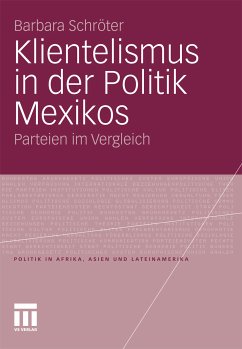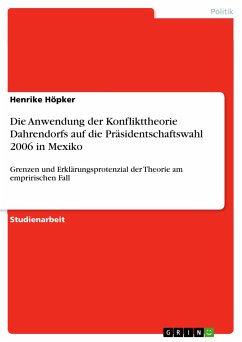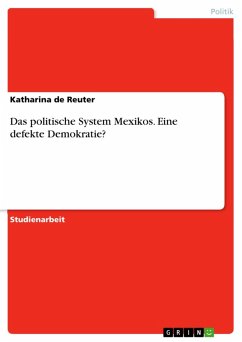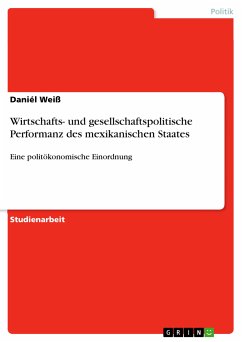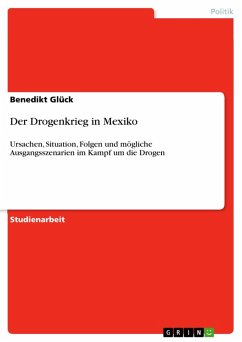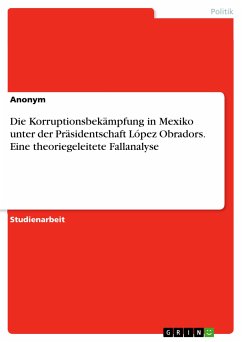
Der Wandel von Klientelismus zur Bürgergesellschaft in Mexiko (eBook, PDF)

PAYBACK Punkte
0 °P sammeln!
Examensarbeit aus dem Jahr 2005 im Fachbereich Politik - Region: Mittel- und Südamerika, Note: 2,0, Universität Potsdam, Sprache: Deutsch, Abstract: "Recent political events in Latin America suggest a transformation in state-society relations. Across the region, there are indications that voter compliance and, as a result, elections can no longer be secured by the time - honored practice of exchanging votes for favors otherwise known as clientelism. Indeed, the recent difficulties experienced by the Institutional Revolutionary Party (PRI) in Mexico and the continued success of the Workers Pa...
Examensarbeit aus dem Jahr 2005 im Fachbereich Politik - Region: Mittel- und Südamerika, Note: 2,0, Universität Potsdam, Sprache: Deutsch, Abstract: "Recent political events in Latin America suggest a transformation in state-society relations. Across the region, there are indications that voter compliance and, as a result, elections can no longer be secured by the time - honored practice of exchanging votes for favors otherwise known as clientelism. Indeed, the recent difficulties experienced by the Institutional Revolutionary Party (PRI) in Mexico and the continued success of the Workers Party (PT) in Brazil have been interpreted as evidence that traditional mechanisms of political control are breaking down." Bei der Präsidentschaftswahl im Jahr 2000 erlebte Mexiko ein politisches Novum. Nach über 71 Jahren wurde der Partido Revolucionario Institucional (PRI), der Mexiko seit 1929 regierte, abgewählt. Stattdessen stimmte die Bevölkerung für Vicente Fox, den Kandidaten der katholisch- konservativen Partido Acción Nacional (PAN). Der außergewöhnlich lange Machterhalt des PRIs basierte in hohem Maße auf Klientelismus. Hierbei handelt es ich um informelle Abhängigkeitsverhältnisse, bei denen private Leistungen im Gegenzug für politische Unterstützung getauscht werden. So existierte sowohl zwischen Staat und Gesellschaft, als auch innerhalb der Partei ein Netz aus gegenseitigen Gefälligkeiten und Abhängigkeiten, an dessen Spitze der mexikanische Präsident stand. Bei Wahlen kann der Klientelismus in der Form des Stimmenkaufs, der Tausch einer Ware gegen eine Wählerstimme, auftreten. Als ab Mitte der 80er Jahre der Einfluss des PRIs durch wirtschaftliche und politische Reformen sank, versuchte der PRI vermehrt durch Stimmenkauf den Machterhalt zu sichern.
Dieser Download kann aus rechtlichen Gründen nur mit Rechnungsadresse in A, B, BG, CY, CZ, D, DK, EW, E, FIN, F, GR, HR, H, IRL, I, LT, L, LR, M, NL, PL, P, R, S, SLO, SK ausgeliefert werden.





